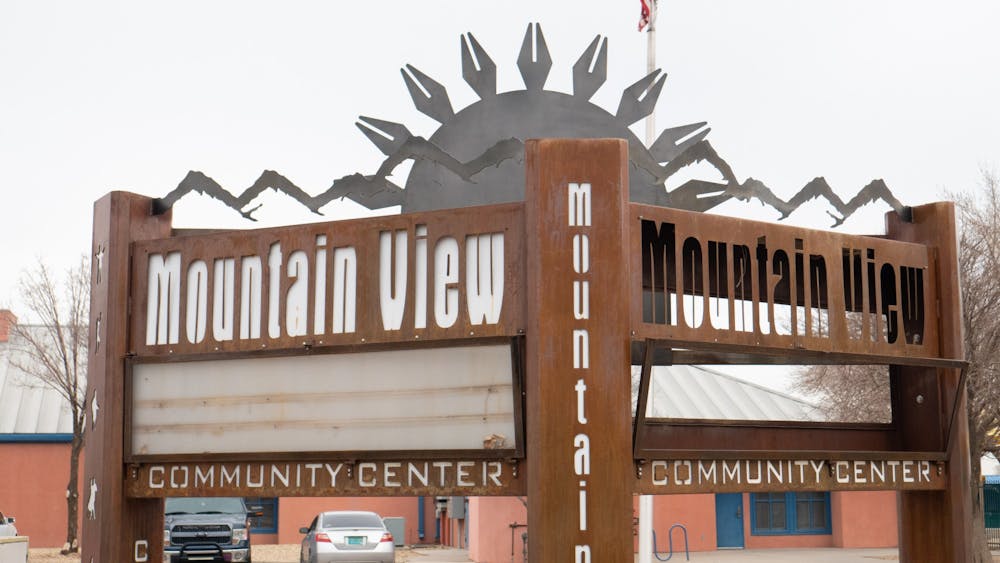Earlier this month on Feb. 8, the Albuquerque-Bernalillo County Air Quality Control Board approved a joint motion that dismissed a hearing for an air quality permit to build an asphalt plant in the Mountain View community in the South Valley of Albuquerque.
The Environmental Law Center joined community organizers in the legal fight to get the asphalt site out of the community in 2018 when the Environmental Health Department issued a permit to New Mexico Terminal Services to create the plant, according to staff attorneys Maslyn Locke and Eric Jantz.
In July 2021, they filed a motion for summary disposition on the grounds that the zoning for the proposed site was restricted to agricultural use, not an industrial plant. Before that could be heard, the permit was sent back to the EHD for reconsideration and was canceled on the grounds that no construction had been made in the past two years, according to Locke and Jantz.
The Mountain View community is recognized by the EPA as an environmental justice community, meaning that the residents have been disproportionately impacted by pollution causing severe health consequences, according to Locke and Jantz. Lauro Silva, president of the Mountain View Neighborhood Association, discussed how this has been impacting their community since the 1970s.
“This, in the past, has been a very prominent agricultural community. Since the early ‘70s they have allowed, with the zoning, heavy industry to come into Mountain View, and those industries are also contaminated very seriously,” Silza said.
The change in zoning for the community as a whole from agricultural to industrial that started in the 1960s, in tandem with little environmental regulation, has left detrimental health consequences, according to an article on zoning and health equity by Maren Neldam and Serena Walters. This includes heightened rates of cardiovascular disease and death.
“The death rates of Mountain View residents from cancer are also the highest in the county,” the study reads.
Marla Painter, a member of Mountain View Community Action, discussed the discrimination these health issues can create toward the community because of the lower socioeconomic status of many who reside there.
“Any assault on top of the baseline health conditions is not okay because every community has some baseline, and if every community was assaulted by environmental pollution the way we are, then their health would go down: the quality of health would go down,” Painter said.
In the Mountain View community, 23% of individuals fall below the poverty line, 58% of households are families, and 79% of the overall population is Latino, according to Neldam and Walters. The existing industrial sites in that area already continue to harm community members, according to Silva.
“Right now, we have three asphalt plants in the Mountain View community, and the asphalt plants themselves have extremely dangerous volatile organic compounds that are toxic and carcinogenic … We're talking about hundreds of tons of different kinds of pollutants that will be produced out of these … plants as they're producing the asphalt … The chemicals resulting from the production and the manufacturing of that asphalt — a lot of it is released into the air,” Silva said.
Get content from The Daily Lobo delivered to your inbox
Painter thinks the city and county could have been more coordinated around pollution permits.
“The county really is not involved in environmental oversight and, consequently, when air permits came out of the city's Environmental Health Department, the county really didn't pay any attention. They weren't really even ever aware of it,” Painter said. “And also on the other side of it, the city did not check the zoning of a property that was applying for an air permit, and there was no coordination there.”
The community is also seeking out further environmental regulation to prevent situations like this from happening in the future. Painter expressed concerns that if a conservative administration came in, the work could be undone. There is still vacant land that is properly zoned for industry as well, according to Neldam and Walters.
At the city/county level, Painter said they are advocating for an environment and cumulative impact regulation which would limit the amount of industry that can be in one area, especially those that are already overburdened and low income. Currently, regulation is limited to potential pollution rather than looking at the pollution as a whole, according to Silva.
‘(It’s) limited to only considering the amount of pollution that that particular applicant is requesting. What they do not do is to account for the already existing polluting industries, from the other industries that are already contaminating the atmosphere in our community,” Silva said.
There is also support for a statewide environmental protection act that would similarly aim to view these situations collectively, taking into account how the facility as a whole will impact the community: noise and light pollution, aesthetic, and safety concerns, according to Painter.
“The concept of well-being is important too, and well-being has to do with how safe you feel and what you look at when you walk out of your house and what you breathe as well … A lot of people here (live) on wells and they don't know what the quality of their water is,” Painter said.
In regards to the future of the Terminal Services plant, Locke and Jantz wrote they “would be surprised” to see the plant constructed somewhere else as they would first need to find an appropriately zoned site and then reapply for air pollution permits.
Maddie Pukite is the managing editor at the Daily Lobo. They can be contacted at managingeditor@dailylobo.com or on Twitter @maddogpukite






